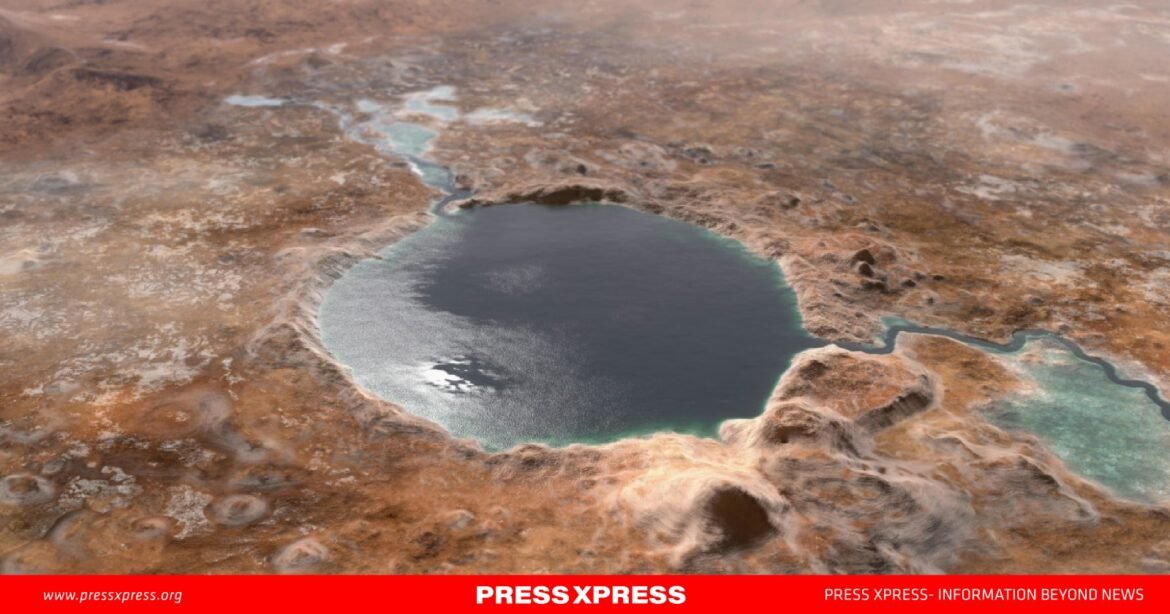Scientists have discovered an ancient lake on Mars that could provide clues about the planet’s potential to support life. Researchers from the Physical Research Laboratory in Ahmedabad, India, identified the lake in the chloride-rich Terra Sirenum region. This area is significant because chloride, an essential element for life, may have contributed to a habitable environment. The findings, published in the journal JGR Planets, suggest that microbial life might have existed there in the distant past.
The lake is believed to have been part of a vast sedimentary basin, experiencing cycles of wetting and drying, which created favorable conditions for life. This discovery adds to the understanding of Mars’ moist surface history and its early climate. Scientists have long been intrigued by the moisture retention capabilities of Mars’ chloride regions and the sources of ancient water on the planet.
Over 500 potential lake sites have been identified on Mars, many of which are thought to have been formed by rain, melting ice, or asteroid impacts. The Terra Sirenum lake further deepens our understanding of the planet’s habitability, marking a critical step in unraveling Mars’ mysteries and its potential to support life in the past.


